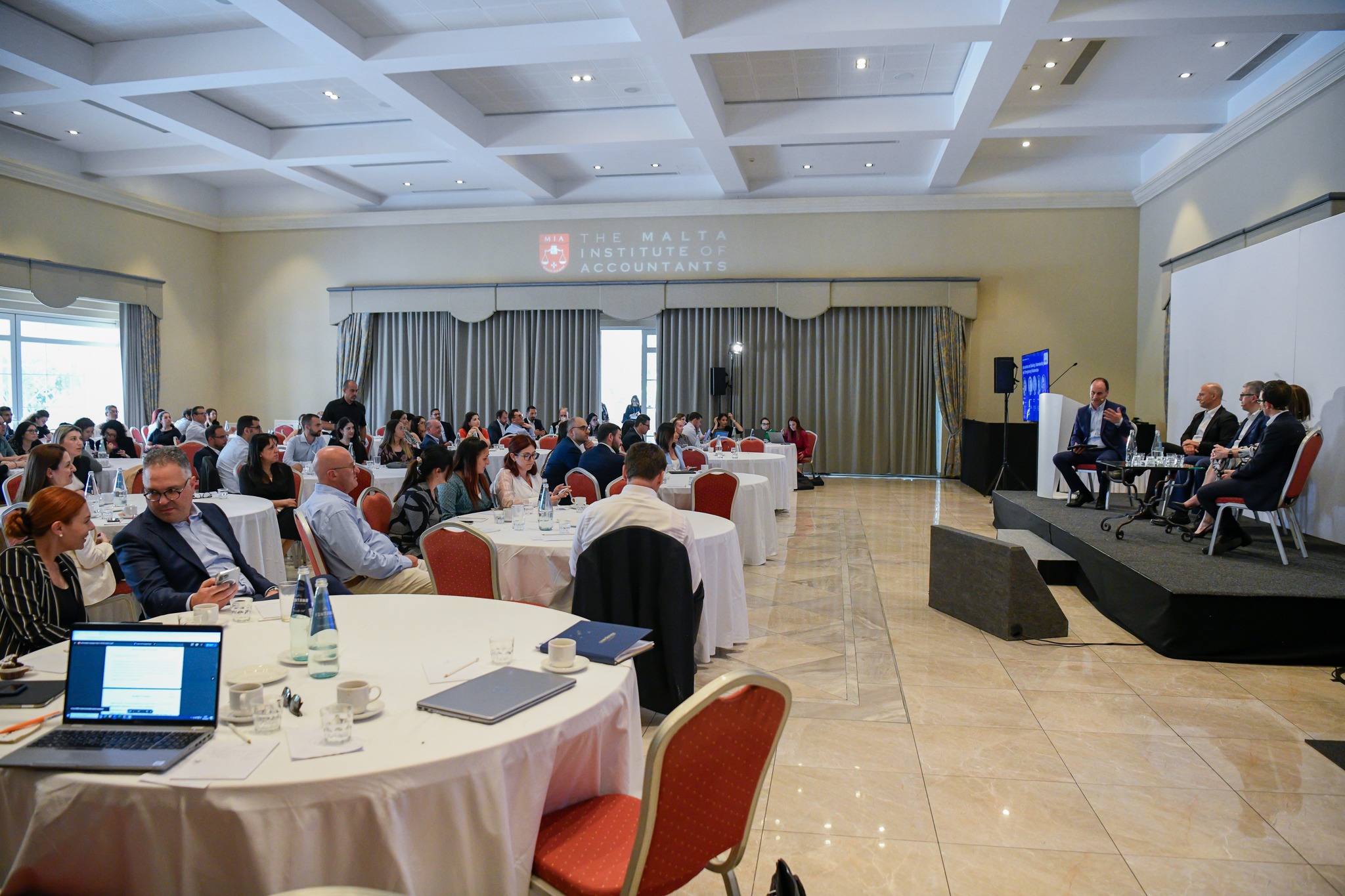Investment in digital tools and skills is fundamental in addressing the twin challenges of talent scarcity and regulatory requirements, and is key in enhancing the nation’s competitiveness in the years ahead.
Such investment is also increasingly required to strengthen organisations’ ability to meet expectations in emerging areas such as sustainability, while creating added value for shareholders and stakeholders.
This was a key underlying theme which emerged strongly by both regulators and business operators during the second conference organised by the Malta Institute of Accountants (MIA) this year, and which addressed key challenges impacting the profession.
Introducing the event, MIA CEO Maria Cauchi Delia said that accountancy professionals play a key role as drivers in creating added value within the operations of the companies they work for. She called for further investment in technology and digital tools and skills, which are fundamental to reduce administrative burdens while addressing the talent shortage which afflicts the Maltese economy at the present time.
This view was shared by other speakers. It was noted that with Malta approaching full employment and an ageing workforce, it requires a major effort to allow technology to take over several jobs, to allow firms to channel their resources to more productive, higher value-added activities.
Representatives from various regulators acknowledged the increasing regulatory challenges impacting Maltese organisations, while highlighting that most of these changes are being driven from a European or international level. The different regulators pointed to their effort to invest in technology to facilitate the regulatory process, while emphasising the importance for businesses to ensure compliance.
Various discussion panels led to lively debates, including with public interaction, on issues such as sustainability, the advance of AI in supporting business development, as well as the role of accountants and chief financial officers in driving value creation – hence the transition to chief value officer – elements which are also intrinsically tied with Malta’s competitiveness efforts.
These panels featured top officials from some of Malta’s top businesses in various industries. Various business leaders expanded on the role of technology, both in driving organisational efficiency, enhancing data-driven processes and improving regulatory compliance.
A final stakeholder panel brought together representatives from banks in search of solutions to strengthen relationships between the profession and the banking industry, with the latter being seen as a key stakeholder for industry growth and success.
The conference was organised with the support of the MIA Professional Accountants in Business (PAIB) Group and supported by Scope Solutions, Softline Computer Systems Ltd and APS Bank.
Featured Image:
BNF Bank / Facebook
Finance Minister confirms continuity of food and energy subsidies
Spending on food and energy subsidies as a percentage of the GDP will be at 0.7% in 2025
MHRA congratulates Glenn Micallef on EU role, highlights positive impact on Malta’s tourism and cultural sectors
The lobby group emphasised that Malta’s cultural assets and sports scene are key factors in attracting visitors and fostering economic ...
SME Chamber and Malta Developers Association slam controversial Identità lease attestation form
Identità's new procedure concerning lease attestation forms was not welcomed by these local stakeholders






